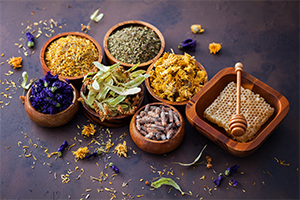
Heart attacks are defines as a blockage of blood flow to the heart muscle. It occurs when the heart muscle or part of the heart muscle does not receive enough blood flow. The more time that passes without blood flow to the heart, the greater the damage to the heart. Symptoms can vary between men and women and can feel completely different. Feelings winded, fatigued or nauseous are common symptoms, as well as chest and arm pain.
One in five heart attacks is silent, meaning that the patient is not aware that they are having or have had a heart attack. Atrial fibrillation can also be a silent warning sign or cause of heart attack. Atrial fibrillation is an irregular, rapid heartbeat that can cause poor blood flow to the heart. Half of people who have atrial fibrillation do not have any symptoms. Those who do suffer from symptoms can have subtle warning signs like dizziness, fatigue, or shortness of breath.
Prevention and screening
Prevention and screening is the most important way to catch diseases of any type, but are especially important for silent killers like heart attacks and high blood pressure. A stress test is a simple test that includes walking on a treadmill with monitors attached to test the function of the heart and lungs. Images may or may not be taken.
Treatment for heart attack or other heart issues varies widely based on the type of disease, but the best thing you can do for any health issue is take care of yourself before issues even present. We can all start by taking a better look at the activity level in our lives, and look for natural remedies in the foods we consume daily.
How herbs can help
An herb is defined as any plant with leaves, seeds or flowers—often used for flavoring in foods, perfumes and medicines. You may be most familiar with herbs used in cooking, as many herbs have distinctive tastes or smells and occur often in cuisines of many different cultures. There are an estimated 100,000 different herbs in the world, and even some of the most popular herbs we use daily can have enormous health benefits when ingested in moderation.
Different herbs and their benefits
Herbs have not yet been isolated, compounded and sold into official approved medicinal practice, but herbs in their natural state can still have great benefits.
• Peppermint has been shown to help with digestive issues, nausea and stress.
• Basil is known to combat stress, lower cholesterol and level, and can help slow down the natural aging process.
• Oregano leaves act as antioxidants, ridding your body of toxins.
• Rosemary can help with dandruff.
• Sage is known for its deep flavor but can also help with digestion, symptoms of diabetes, and can be an effective pain reliever.
• Thyme can reduce blood pressure, which puts less stress on the heart. It has also been known to improve digestion and aid in weight loss.
• Chives boost the immune system, ease digestion and help detoxify the body.
• Tarragon can help relieve stomach cramps, and fights fatigue. Chewing tarragon may stop hiccups!
• Dill seeds and leaves have many nutrients, vitamins and minerals and can help with reducing inflammation caused by arthritis
• Bay Leaves lower the level of stress hormones in the body, and can help eliminate bad cholesterol from the cardiovascular system.
• Chervil, an herb related to parsley, can control high blood pressure and help with the skin condition eczema.
• Parsley has many health benefits, and it is full of fiber, calcium, and vitamins across the board.
• Cilantro is anti-bacterial, anti-fungal, and anti-inflammatory. It can regulate blood sugar and promotes a healthy liver function.
• Onions are not technically an herb, but often go hand in hand with herbs in many dishes. Onions contain lots of vitamins and properties that may lower blood pressure. White onions have the highest fiber content.
• Garlic is a spice that is used in almost every cuisine worldwide. It has been shown to lower blood pressure, help with cold symptoms, and may even provide relief from painful digestion.
• Ginger is famously known to help ease nausea, but it can also provide relief from muscle cramps and joint pain. It is made up of 50% fiber and has large amounts of manganese, iron and vitamin E.
• Lemongrass has antibiotic properties and can boost the nervous and immune system.
• Turmeric is a popular spice in Middle Eastern and African dishes, and is still used to heal wounds in some communities. Turmeric can control blood pressure, reduce cholesterol and help prevent inflammation.
• Coriander is the seed that grows cilantro, and can be used mainly to ease digestive, gas and bloating issues.
• Star Anise is not a well-known spice in American diets, but can usually be found around the holiday season in mulled spice packets. Star anise is good for treating a cough and has natural sedating properties, so is probably best before bed.
• Cumin can aid in digestion and help fight viral infections in the body.
• Cinnamon originates from the cinnamomum verum and cinnamomum cassia trees. Cassia trees procide 80 to 90% of the world’s cinnamon. Cinnamon acts as an antioxidant and anti-inflammatory and can help lower cholesterol and blood pressure.
No herb is a replacement for medical advice or medicine prescribed by your doctor, but by adding these herbs into the food you already eat, taking advice from your doctor and screening often for heart issues, you can get a head start on a healthy future.
Long Cao
Cardiology
OakBend Medical Group
Disclaimer: The contents of this article, including text and images, are for informational purposes only and do not constitute a medical service. Always seek the advice of a physician or other qualified health professional for medical advice, diagnosis, and treatment.








